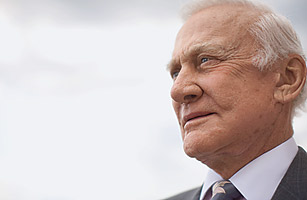
(4 of 4)
Lovell was the target of tag-team pressure from the stars of the Republican Party — including Vice President Spiro Agnew — all of whom wanted him to run for the Senate from Wisconsin and all of whom he turned down. Finally, the phone rang in his Houston home with a call from the White House. This time it was the Commander in Chief calling to ask an active naval officer to step forward and serve his party. Lovell might have succumbed — but Nixon overplayed his hand. When Lovell mentioned that he'd had no time to raise campaign funds and that the primary was just weeks away, Nixon dismissed the problem. "Son," he said in a tone that was meant to be reassuring but was something else entirely, "money is no problem." Lovell, now well spooked, gave his final no.
The astronauts found their ways into postmoon careers, and some thrived. Apollo 8's Frank Borman became chairman of Eastern Airlines. Crewmate William Anders became chairman of General Dynamics, an aerospace, marine and defense contractor, earning a tip of the hat from the other astronauts as the richest of the former moonmen — though no one has ever done the comparative accounting that would confirm the rep.
Others went in less predictable directions. Bean, who has always had a deft way with a paintbrush and palette, turned to the easel full time, painting the subjects he knew best: the moon and the people who trod it. He has a new exhibition opening at the National Air and Space Museum in Washington this month. Duke, who insists he found no philosophical meaning in his time on the moon, nonetheless came home to find a deep well of Christian spirituality within himself and fills his time with secular and religious speaking. Apollo 15's James Irwin similarly found his faith and established a nonprofit religious group.
Apollo 14's Mitchell was the biggest surprise of all. He stunned most people upon his return when he revealed that during the mission he had quietly conducted experiments in extrasensory perception with two friends back home — trying to send them mental images from space. He later founded the Institute of Noetic Sciences in Petaluma, Calif., to study what some refer to as the paranormal — and what he insists is nothing of the kind. "Nothing is para once you know what's going on," he counters. "For some people, it's normal." Mitchell says it was his lunar journey that opened his eyes to something larger in the universe — what he refers to as his "ah-ha experience."
The challenging re-entry so many astronauts endured has prodded the modern NASA to pay closer mind to its pilots after they come home. "I'm not sure of what we did then, but it's nothing like what we do now," says Polk. "We do much more to lend assistance to astronauts and their families." Some of that assistance involves helping crews deal not with massive fame followed by indifference but with indifference from the start, as a public that has long since wearied of the space shuttle stops paying attention altogether.
Whether such anonymity might have benefited the Apollo veterans depends mostly on each man. Aldrin eventually found stability and sobriety and has since pursued a high-profile public-speaking and consulting career that in many ways cashes in on his lunar backstory. Armstrong, on the other hand, has retreated from public view, shunning interviews and appearances, with the exception of a visit to the White House every fifth year on the anniversary of the Apollo 11 landing. I once asked Scott — who survived a near death experience with Armstrong when their Gemini 8 spacecraft spun out of control in Earth orbit in 1966 — if perhaps his old crewmate's Salinger act was inappropriate for a man who in some ways had been selected to make history rather than make it on his own. "Absolutely not," the ordinarily affable Scott said — almost snapped. "Neil did everything that was ever asked of him. He flew his missions, he did his p.r. tours. His life is his own."
It's that comradeship — forged in the fires of liftoff and set in the deep freeze of space — that may be the pilots' most enduring lunar legacy. Early in my work on the Apollo 13 book, I asked Lovell a question he'd been asked many times before: Did any member of his crew panic during the emergency return they made to Earth — particularly in the first few hours, when there was no reason to believe they'd even survive the night? Lovell answered that the three men had agreed never to discuss that matter with anyone else and never would. The obvious inference was that of course someone had come unhinged — why else wouldn't he say otherwise? — but that conclusion, I came to understand, was wrong. The confidentiality of the lunar cockpit was an absolute thing, whether breaching the secrecy would cast the crew in a good light or a bad one. In the long history of the human species, there are only 24 men who have come to understand that bond. The rest of us can still only guess at it.
Kluger is a senior editor and writer for TIME and co-author of Apollo 13